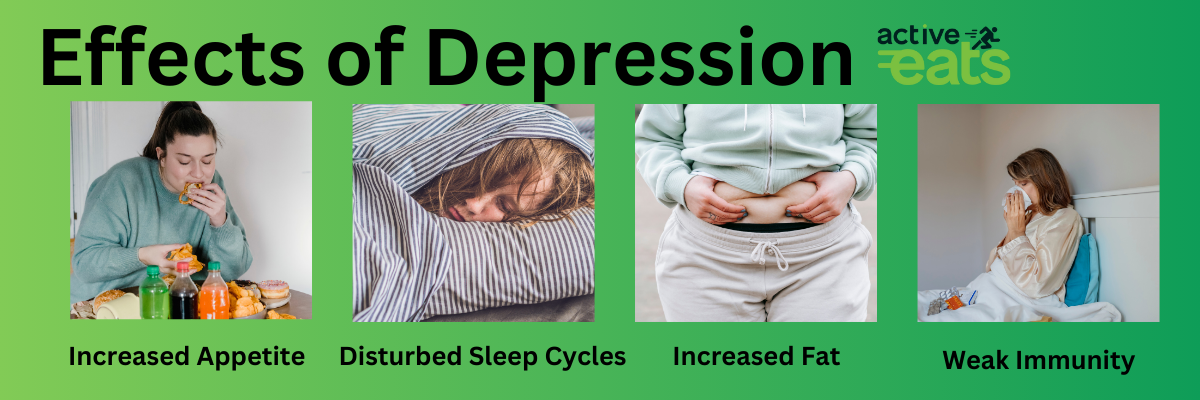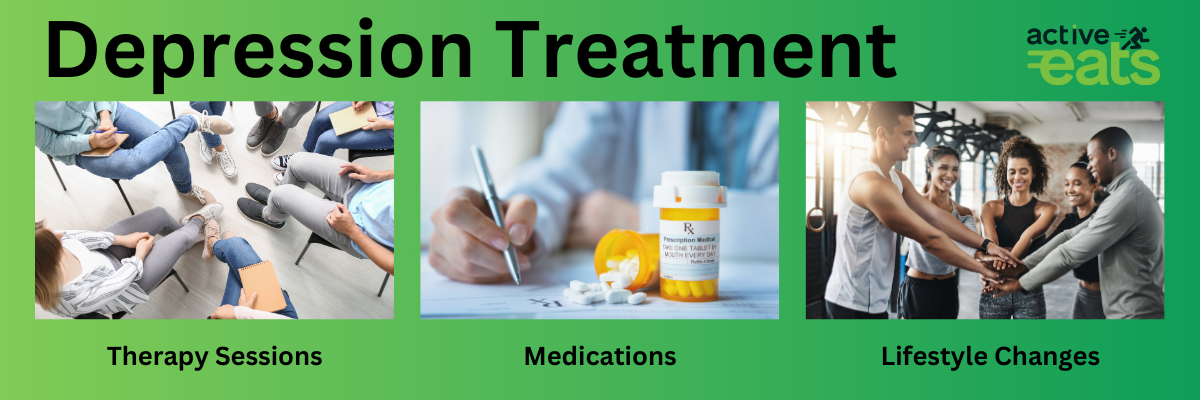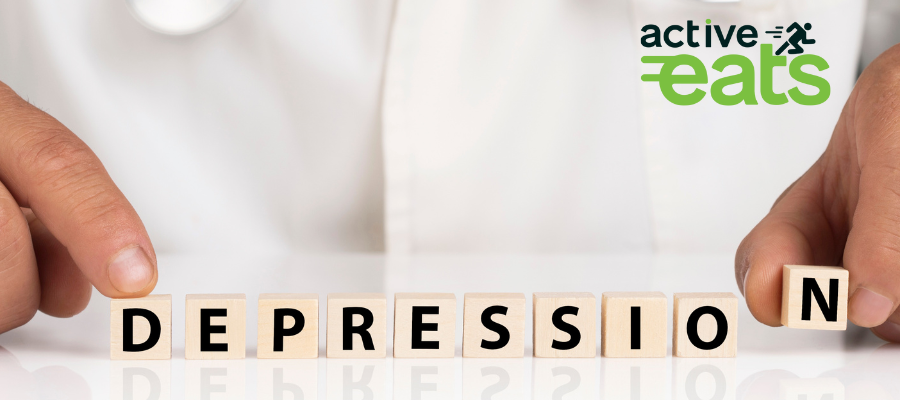Navigating the Shadows: Understanding and Overcoming Depression with Compassion and Resilience
Depression is a common mental health issue that can be found in almost all age groups. During depression, an individual may feel sadness, hopelessness, and a lack of interest in activities. In this blog post, we will explore deeply what depression is, how it affects your body, the signs and symptoms to look out for, and ways to cope with and treat depression.
What is Depression?
Depression is a mental health condition that affects how you feel, think, and behave. It may include feeling sad, worthless leading to lack of interest or pleasure in daily activities. It effects your ability to work, study, eat, sleep, and enjoy life.
Depression can occur at any age to anyone, and nowadays it can even occur in teenage. Generally it is more common In women due to more hormonal fluctuations. Anyone, regardless of their age or gender suffering from depression should talk to someone who can offer support such as a friend, family member or mental health professionals.
Understanding Depression
Generally depression is caused by not one but multiple factors. It could be caused by hormonal imbalances in the body or due to any trauma or major stressful life event. Social isolation is also a dominating factor in depression along with family history of depression. Although these factor do not directly leads to depression but contributes to the development of depression.
What Happens in Your Body During Depression?

The effects of depressions can be seen physically as well as emotionally. When you experience depression, your adrenal glands releases stress hormones such as cortisol. Excess cortisol leads to increased appetite and fat storage around abdomen. High cortisol levels also contribute to disturbed sleep-wake cycles resulting in mood disorders like anxiety. Additionally, high cortisol level leads to high blood pressure and weak immune system along with poor memory and cognitive functions.
Signs and Symptoms of Depression
Everyone experiences depression differently, there are some common signs and symptoms to look out for:
- Feeling sad, hopeless, or empty
- Loss of interest or pleasure in activities
- Changes in appetite and weight
- Changes in sleep patterns
- Feeling tired or lacking energy
- Difficulty concentrating or making decisions
- Feelings of guilt or worthlessness
- Physical symptoms such as headaches or stomachaches
- Thoughts of death or suicide
If you or someone you know is experiencing any of these symptoms, it is important to reach out for help and support. Depression is a treatable condition, and with the right intervention, individuals can recover and lead fulfilling lives.
Self-Assessment of Depression
While self-analysis can provide some insights, it should be remembered that self-diagnosis is not a substitute for professional evaluation. If you suspect you may be experiencing depression, consider the following steps:
Symptom Identification: Common symptoms like feelings of sadness, loss of interest or pleasure in daily activities, sleep deprivation, low appetite, constant feeling of fatigue, worthlessness or guilt, difficulty concentrating, and thoughts of death or suicide are not to be ignored.
Self-Reflection: Monitor your emotions and check if you are experiencing negative feelings or a lack of interest in things that used to bring you joy.
Impact on Functioning: Assess how depression is impacting your daily functioning, including work, relationships, and personal activities. Severe depression can interfere with various aspects of life.
Seeking Support: Reach out to friends, family, or trusted individuals to discuss your feelings. They may provide valuable perspectives and support.
Professional Help: If your self-analysis suggests the possibility of depression, it’s crucial to seek professional help.
Remember that mental health is complex, and it’s okay to seek help. A mental health professional can offer guidance, support, and a tailored approach to managing depression. If you’re experiencing thoughts of self-harm or suicide, please seek immediate assistance from a mental health hotline, emergency services, or a healthcare provider.
Risks in Depression
Depression affects our mental as well as physical health. Individuals with depression are at a higher risk of developing certain medical conditions, including:
- Heart disease
- Dementia
- Diabetes
- Obesity
- Stroke
- Chronic pain
Additionally, depression can increase the risk of substance abuse and suicidal thoughts or behaviors. It is important to address the risks associated with depression and seek appropriate treatment to prevent further complications.
Depression Treatment

Treatment for depression typically involves a combination of therapy, medication, and lifestyle changes.
Therapy, such as cognitive-behavioral therapy (CBT), can help individuals identify and change negative thought patterns and behaviors.
Medications, such as antidepressants, can help correct imbalances in brain chemicals and alleviate symptoms of depression.
In addition to therapy and medication, engaging in regular physical activity, practicing stress management techniques, maintaining a healthy diet, and getting enough sleep are all important factors in managing depression symptoms.
Ways to Cope with Depression
Along with therapy, medication and lifestyle changes, , there are also various self-help strategies that can complement therapy and medication. Here are some ways to cope with depression:
- Reach out for support – Talk to a trusted friend or family member about what you’re going through.
- Engage in activities you enjoy – Find activities that bring you joy and make time for them regularly.
- Practice self-care – Take care of yourself by practicing good hygiene, getting enough sleep, and eating nutritious meals.
- Set realistic goals – Break tasks into smaller, manageable steps and celebrate your achievements.
- Challenge negative thoughts – Replace negative thoughts with positive and realistic ones.
- Practice relaxation techniques – Try deep breathing exercises, meditation, or yoga to reduce stress and promote relaxation.
- Avoid alcohol and drugs – Substance abuse can worsen depression symptoms and interfere with treatment.
Remember, coping with depression takes time and effort. Be patient with yourself as you work towards recovery.
Conclusion
Depression is a serious mental health condition that affects millions of people worldwide. It is important to understand what depression is, the various factors that contribute to its development, and the signs and symptoms to look out for. Seeking timely intervention and treatment is essential for managing depression and improving overall well-being. With the right support, individuals can recover from depression and lead fulfilling lives.


Thyroid Disease : The Truth - coachactiveeats.com
[…] Depression […]
Gut Health Hacks - coachactiveeats.com
[…] The gut and brain are connected through the gut-brain axis, influencing mood and mental health. Research suggests that an unhealthy gut can contribute to the development of mental health conditions like anxiety and depression. […]
Top 6 Astounding Health Effects of Technology - coachactiveeats.com
[…] use of digital technology has lead to increased risk of mental health issues such as anxiety, depression, and social isolation. Constant exposure to social media and online platforms can negatively affect […]
Healthy Indoor Plants for Your Home and Workplace | Coach Active Eats
[…] and reduce stress. The presence of greenery indoors has a calming effect which reduces stress and anxiety and promotes a sense of […]
Early Health Signs and Warnings | Coach Active Eats
[…] Warning signs of depression […]